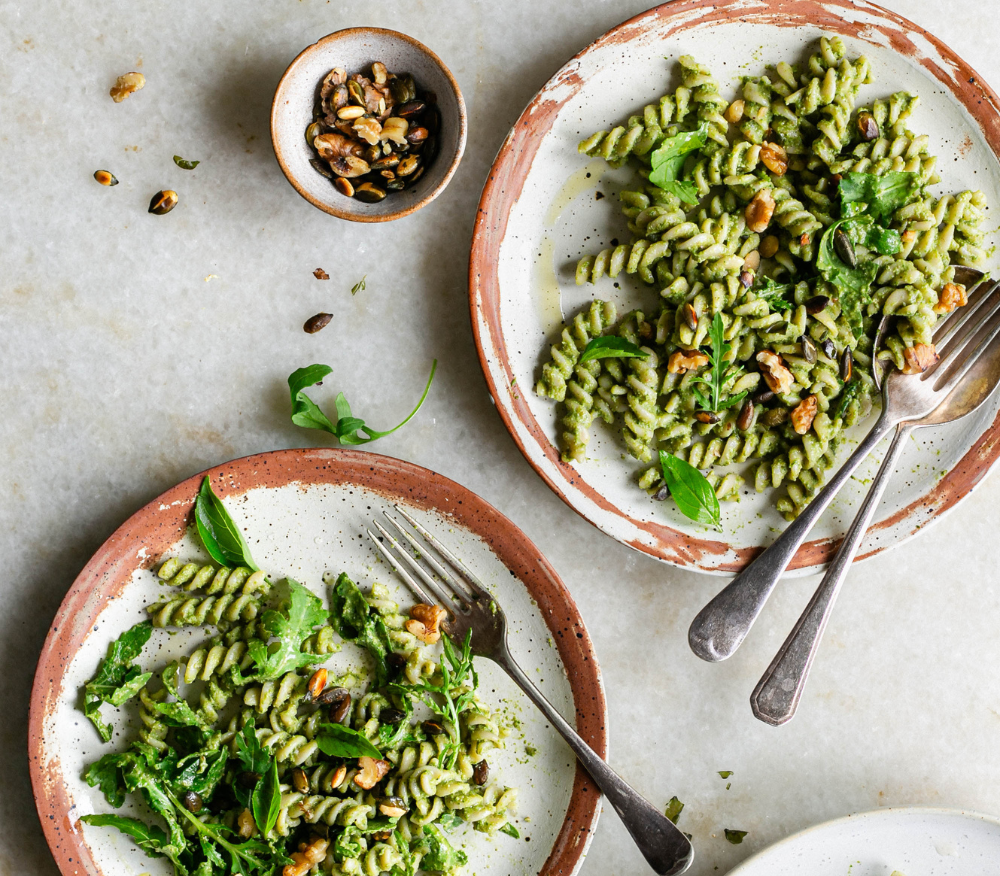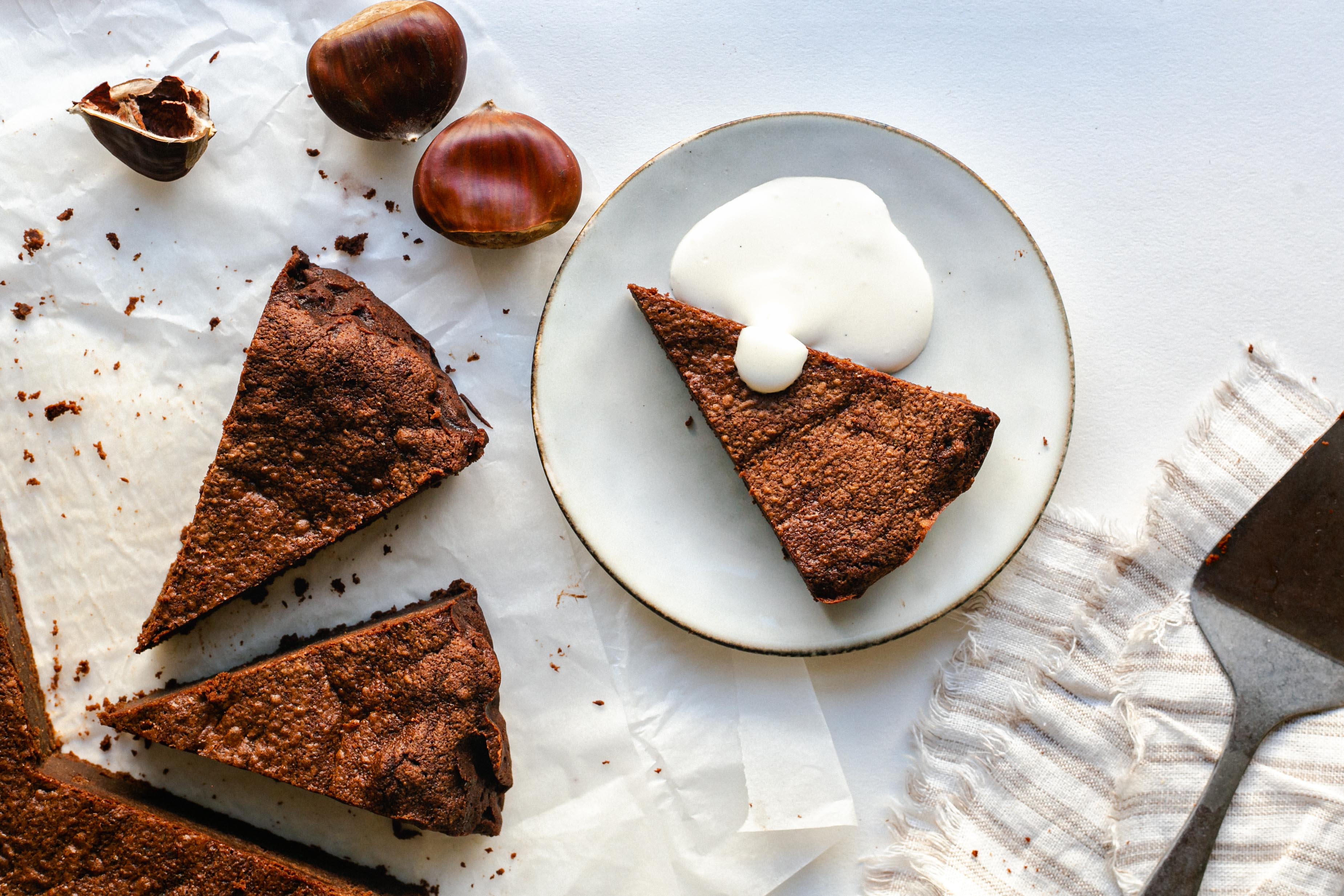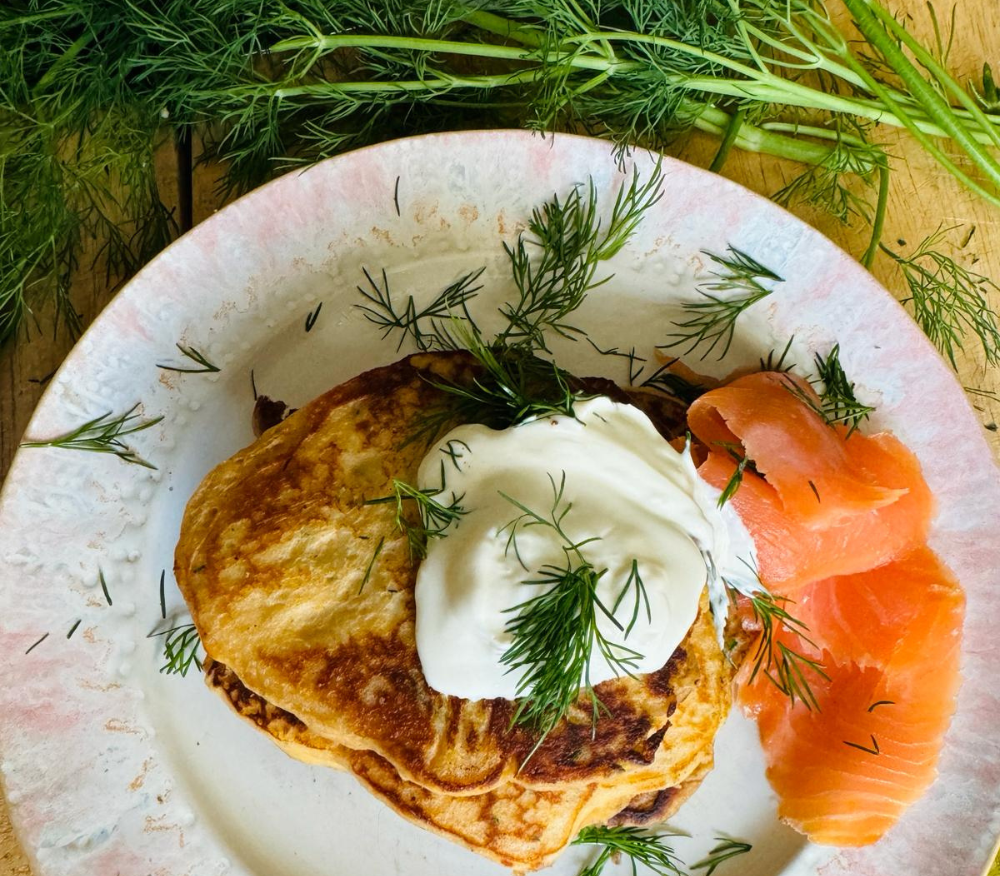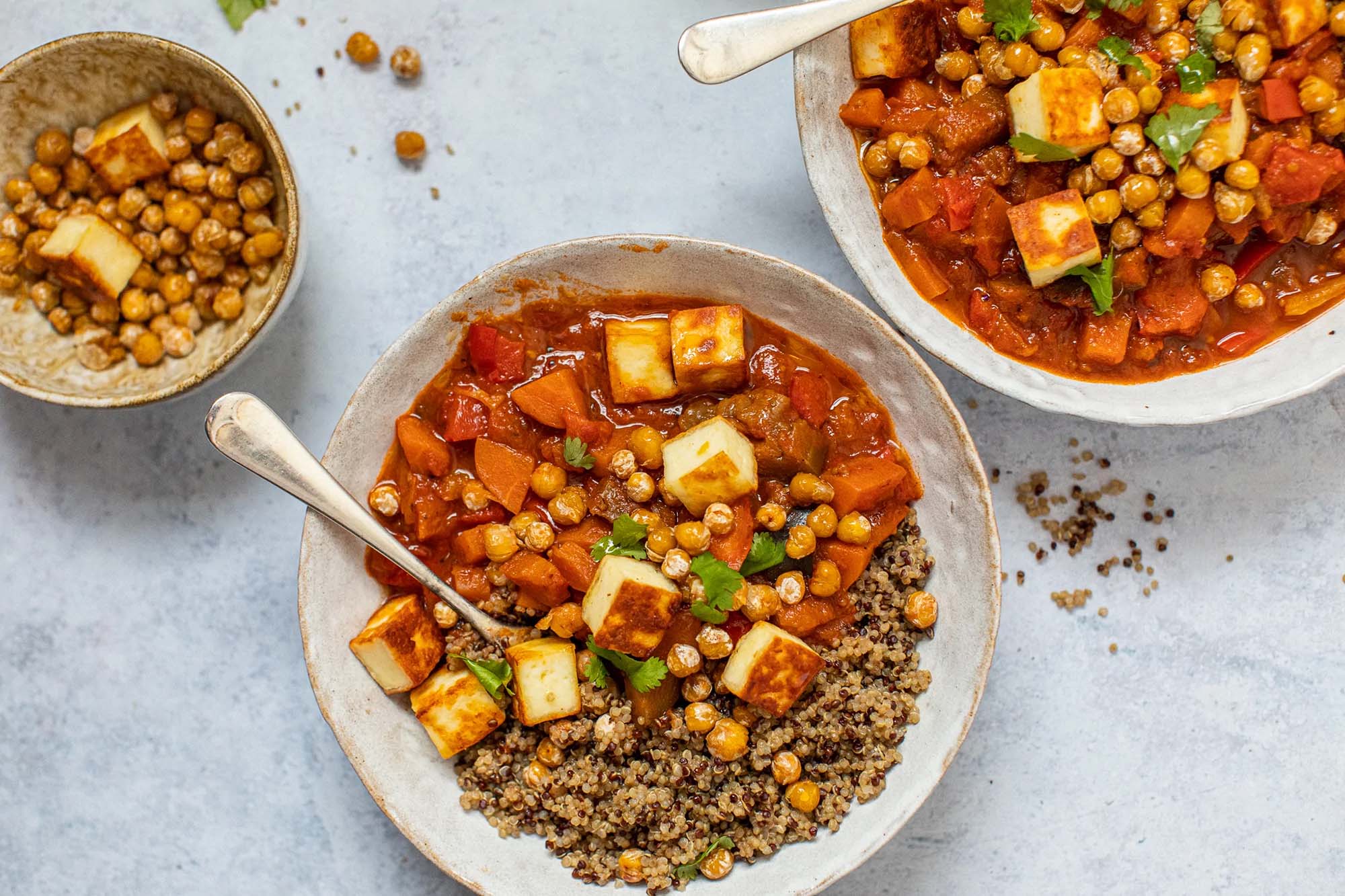September: Week Four
Here is your final week of recipe plans for September. Like we’ve done for the last three weeks, each recipe will include a short section on why some of the ingredients are key for immune health.
Day 1: Creamy Kale and Black Bean Curry
How does it support my immune health?
Black beans are packed with fibre, containing around 8g per half can. Specifically, black beans contain prebiotics – a type of fermentable fibre that acts as ‘food’ for your gut microbiome.
Garlic is a must in this dish. The compounds in garlic (such as caffeic acid and S-allyl-L-cysteine) are thought to have anti-inflammatory effects and increase the functioning of certain immune cells, such as macrophages, natural killer (NK) cells, and specialist T and B cells.
Day 2: Green Kefir Pesto Pasta Salad
How does it support my immune health?
Broccoli is part of the cruciferous veggie group which also includes cauliflower, cabbage, and kale. This group is an important one because it contains distinctive sulphur-containing plant chemicals, including glucosinolates. Glucosinolates are almost exclusively found in these veggie types and have been linked with anti-inflammatory and immune-strengthening effects. In fact, studies have shown a lower risk of gut-related cancers with increased consumption.
Walnuts are rich sources of polyphenols such as flavonoids. In fact, walnuts contain the highest concentrations of polyphenols compared with other tree nuts. Flavonoids have strong anti-inflammatory effects. Walnuts are a good source of vitamin E which have potent anti-inflammatory effects and is well recognised for its role in immune function (especially specialist T cells) and helping to reduce the risk of infections.
Day 3: Chestnut and Chocolate Torte
How does it support my immune health?
Dark chocolate contains polyphenols (such as flavonoids) and other compounds (such as theobromine). It’s also rich in minerals which are vital for an optimally functioning immune system.
For example, magnesium plays a role in the function of specialist T cells, whereas zinc is important for other type of immune cells, such as neutrophils, macrophages, and natural killer (NK) cells. These cells are involved in destroying and eliminating harmful bacteria and viruses.
Day 4: Smoky Enchiladas
How does it support my immune health?
Tomatoes and tomato products (e.g. tomato puree, tomato juice) are major sources of lycopene – a plant chemical found in highest amounts in the skin and acts as a powerful antioxidant. Lycopene can increase antibody production by specialist immune cells called B cells. Antibodies attach to harmful invaders - such as bacteria and viruses – and neutralise them.
The lentils in this dish are packed with fibre, containing an impressive 8g per half can. Specifically, lentils contain prebiotics – a type of fermentable fibre that acts as ‘food’ for your gut microbiome. In return, your gut microbes release health-promoting compounds into the gut, such as short chain fatty acids (SFCAs).
Day 5: Lemon Ricotta Hotcakes with Smoked Salmon
How does it support my immune health?
Smoked salmon is rich in protein which acts as building blocks for all immune cells and antibodies.
Buckwheat is a wholegrain and a good source of several B vitamins – these vitamins play a role in shaping the health of the gut microbiome.
Day 6: Veg-Packed Curry with Crispy Chickpeas and Paneer
How does it support my immune health?
Chickpeas are an excellent source of protein – around 10g per half can - which acts as building blocks for immune cells and antibodies. They are also packed with minerals - such as zinc – which is essential for the development of specialised cells called T cells.
Carrots are a rich source of vitamin A and C – both of which are important for immune health.
For example, vitamin A support the function of many types of immune cells including macrophages, T cells and B cells. Vitamin A also bolsters defence against several infections. On the other hand, vitamin C supports immune health by neutralising harmful compounds (known as free radicals) that are known to damage cells.
Day 7: Butter Bean Mash with Garlicky Almonds and Greens
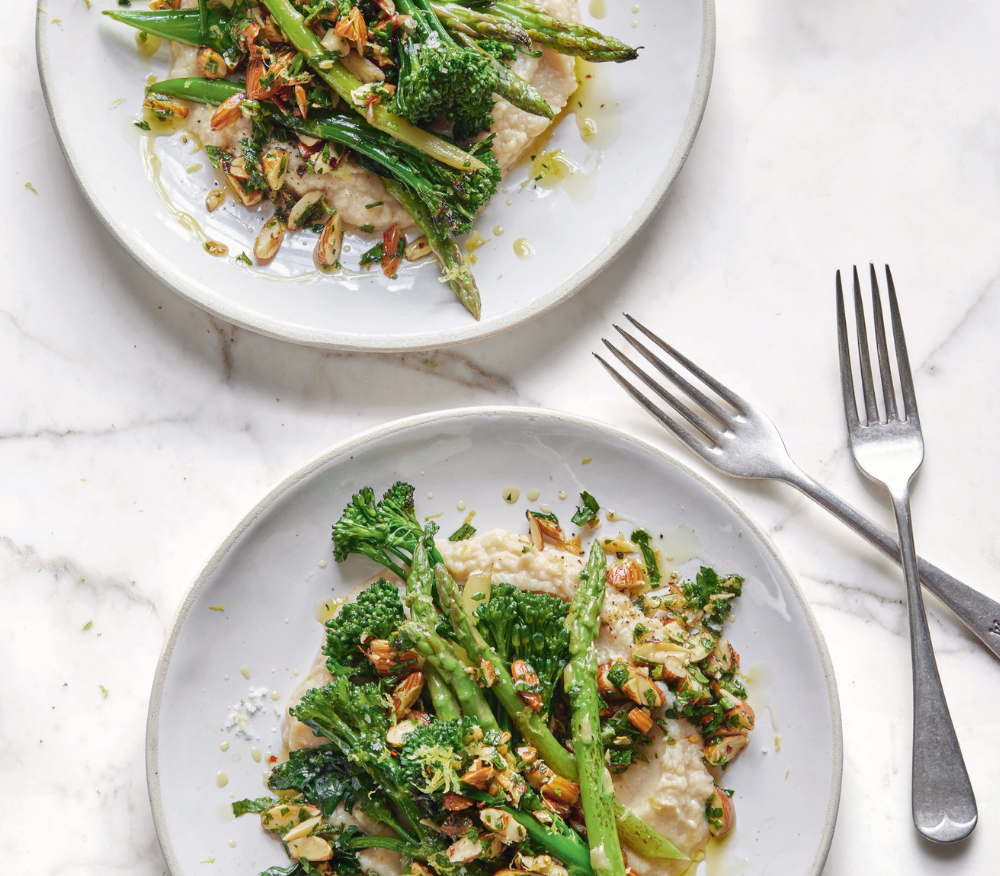 How does it support my immune health?
How does it support my immune health?
Almonds are rich in several nutrients known for supporting immunity, including vitamin E. In fact, vitamin E has potent anti-inflammatory effects and is well recognised for its role in immune function (especially specialist T cells) and helping to reduce the risk of infections.
Broccoli is part of the cruciferous veggie group which also includes cauliflower, cabbage, and kale. This group is an important one because it contains distinctive sulphur-containing plant chemicals, including glucosinolates. Glucosinolates are almost exclusively found in these veggie types and have been linked with anti-inflammatory and immune-strengthening effects. In fact, studies have shown a lower risk of gut-related cancers with increased consumption.
Hungry for more? Dig into the next batch of gut-immune-supportive recipes
Discover more tips to help support your gut-immune connection.






